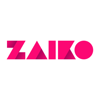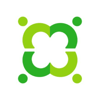Updated October 21, 2025
English Speaking Eye Doctors in Tokyo: A Comprehensive Guide
Vision issues can be stressful, especially in a foreign city like Tokyo, where language barriers might complicate getting the right care.
The good news is that finding quality eye care with English-speaking staff is quite easy in Japan’s capital. This guide covers everything you need to know about English-speaking eye doctors in Tokyo, from making appointments to buying glasses and everything in between.
In this article: 📝
What to Do Before Visiting an English Speaking Eye Doctor in Tokyo
Getting medical care in Japan requires understanding the local healthcare system, insurance requirements, and cultural differences.
Here’s what you need to do before you visit an English-speaking eye doctor in Tokyo.
Making an Appointment
Many eye clinics in Tokyo that cater to English speakers require appointments, though some allow walk-ins for urgent cases or routine exams.
When calling to make an appointment, have your insurance information ready, along with any previous prescriptions or medical records related to your eye health.
If you're experiencing specific symptoms, be prepared to describe them clearly.
Preparing for Your Visit
Before heading to your appointment, gather any relevant documents, including your health insurance card, previous prescriptions, and a list of current medications you’re on.
If you wear glasses or contact lenses, bring them along as they can help the doctor understand your current vision correction needs.
It’s also helpful to jot down any questions or concerns about your eye health to ensure you cover everything during your visit.
Top English Speaking Eye Doctor in Tokyo: Top Clinics
Tokyo offers excellent options for English-speaking eye care. Here's an overview of the best clinics serving international patients.
Eye Clinic Tokyo
Specialization: ICL surgery and refractive procedures
Location: 100-0005 Marunouchi Trust Tower N Building 2F, 1-8-1 Marunouchi, Chiyoda-ku
Contact: Appointments via website only
Eye Clinic Tokyo focuses on ICL (Implantable Collamer Lens) surgery, a reversible vision correction procedure that doesn't reshape the cornea. The clinic treats myopia, hyperopia, and astigmatism with better accuracy than LASIK and lower risk of complications.
Examinations are by appointment only via the clinic’s website.
Azabujuban Eye Clinic
Specialization: General ophthalmology, pediatric ophthalmology, cataracts, glaucoma, macular disease, diabetic retinopathy, allergic conjunctivitis
Contact: 03-5442-3543
Location: 2 minutes from Azabujuban Station Exit 4, 4F Asami Building
At Azabujuban Eye Clinic, Dr. Tamura provides comprehensive eye care in the upscale Azabujuban district. The clinic faces Amishiro Park and operates on a walk-in basis.
The clinic accepts Japanese national health insurance and social insurance, and payments are cash only in JPY.
Ikebukuro Sunshine Street Eye Clinic
Specialization: General ophthalmology, contact lenses
Contact: 03-3981-6363
Location: 1 minute from Ikebukuro Station east exit, 5F (above Mitsubishi UFJ Bank)
Adjacent to J Contact Lens Shop, this clinic provides thorough eye care and has an established contact lens fitting service with guarantees and exchange policies.
Appointments are done via online booking only through the clinic’s website. The clinic accepts all major credit cards in addition to cash payments.
Shinjuku-Higashiguchi Eye Clinic
Specialization: Cataract surgery, retinal diseases, strabismus
Contact: 03-5363-0507
Location: 9th floor of Hulic Shinjuku Building,3-25-1, Shinjuku, Shinjuku-ku, Tokyo, 160-0022
The director of Shinjuku-Higashiguchi Eye Clinic, Dr. Shinkawa, specializes in cataract surgeries, having performed over 4,000 so far, while Dr. Hasegawa specializes in strabismus and amblyopia. The large staff includes 7 orthoptists and multiple nurses, and covers a large area of expertise in ophthalmology.
There’s also a J Contact shop adjacent to the clinic, allowing you to fulfill your prescriptions right after your appointment.
Kato Eye Clinic
Specialization: Comprehensive eye care, pediatric ophthalmology
Location: Daigai Bldg. 5F, 2-3-2 Dogenzaka, Shibuya-ku, Tokyo
Contact: info@katoeyeclinic.com
Kato Eye Clinic offers advanced refractive error treatment, diabetic retinopathy laser treatment, and multiple vision correction options. The clinic is focused on continuous education, keeping its staff up-to-date with the latest developments in eye care technology.
Keep in mind that English-speaking doctors are only available from Tuesday to Friday between 10:30-18:45 (excluding 12:45 to 14:30) and Saturdays between 10:30-12:45.
Minamiaoyama Eye Clinic
Specialization: SMILE pro surgery, ICL, corneal transplantation
Location: Akasaka-Enokizaka Building 2F, 1-7-1 Akasaka, Minato-ku, Tokyo 107-0052
Contact: 03-6633-4872
Minamiaoyama Eye Clinic offers cutting-edge refractive surgery, dry eye treatment, keratoconus care, and myopia control in children. They also provide second opinions and preventive care.
Dr. Miki, a specialist at this clinic, is 1 of 14 certified ICL Expert Instructors in Japan. In addition to offering the first SMILE Pro surgery, the clinic also offers US donor corneas.
Online reservation is possible through the website and via phone.
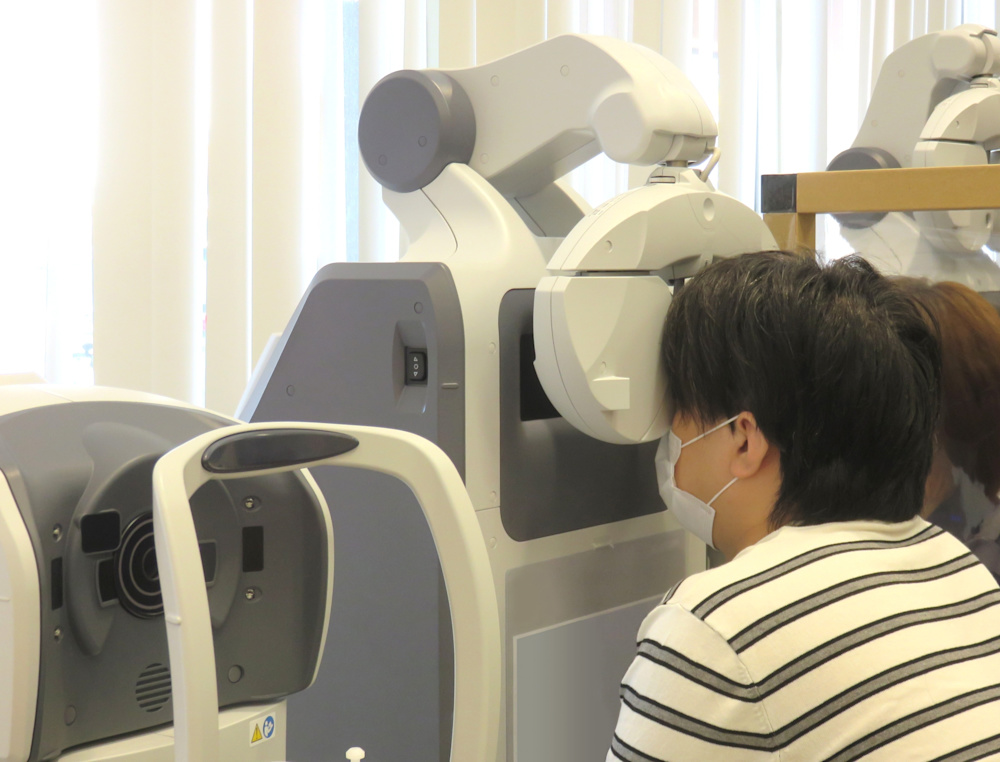
Shinagawa East Medical Clinic
Specialization: General ophthalmology
Location: 〒108-6102 2-15-2 Konan, Minato-ku, Tokyo Shinagawa Intercity Bldg. B 2nd floor
Contact: 03-5783-5521, shinagawa@e-clinic.jp
Part of a larger medical facility, Shinagawa East Medical Clinic treats common eye conditions and offers myopia progression treatment.
The clinic focuses on preventive care and refers complex cases to specialized hospitals. English-speaking staff are only available on Mondays and Thursdays, between 14:30-17:30.
Keishin Gotanda Eye Clinic
Specialization: Dry eye, corneal transplantation, pediatric ophthalmology
Contact: Email only (keishineye@gmail.com)
Location: Gotanda Tokyu Square 8F
At the Keishin Gotanda Eye Clinic, you’ll be treated by the head of clinical trials, Dr. Uchino, who received the Japan Corneal Society Academic Prize in 2020. The clinic specializes in advanced dry eye treatments and corneal procedures.
The doctor is available only on Monday morning & Wednesday for English speakers, so emailing for an appointment earlier than usual is recommended.
Stars' Eye Clinic
Specialization: General ophthalmology, contact lens fittings, one-day cataract surgery, and orthokeratology for myopia control
Locations: Akasaka (near Tameike Sanno) & Shiki
Contact: Online form preferred
Operating since 2003, Stars’ Eye Clinic’s doctors cover a large area of expertise. Just keep in mind that the English availability is limited to Wednesday-Thursday for the Akasaka location and Monday-Tuesday & Friday for the Shiki location.
The clinic accepts credit card payments in addition to cash.
Minamiota Eye Clinic
Specialization: General ophthalmology, weekend service
Contact: 03-3738-0681, info@minamiota.com
Location: Near Zoshiki Station (Keikyu Line), 5F, 2-43-2 Nakarokugo, Ota-ku, Tokyo 144-0055
Minamiota Eye Clinic operates on weekends when most clinics are closed. The facility offers general ophthalmology care plus eye surgeries, pediatric myopia control, and photofacial treatments.
To make an appointment, it’s best to call them directly.
Kamoshita Eye Clinic
Specialization: General ophthalmology, cataract surgery
Contact: 03-3402-6660
Location: 〒106-0032, 7-15-14 Roppongi, Minato-ku, Tokyo Shiogyo Building 4F
Located in Roppongi, Kamoshita Eye Clinic offers comprehensive eye care, day-trip cataract surgery, ptosis surgery, and orthokeratology.
There’s a web appointment system, but the website is Japanese-only. Despite this, you can easily translate it via your web browser to make an appointment.
Musashi Eye Clinic
Specialization: Pediatric & adult eye care, US driver's license exams
Contact: 03-5760-6695
Location: 1-14-1-II-102, Kaminoge, Setagaya-ku, Tokyo
Musashi Eye Clinic provides cataract, glaucoma, and diabetic eye treatment and laser vision consultations. The clinic also accepts eye examinations for school health checks anytime.
Please bear in mind that, as part of their policy, the clinic requires all patients to wear masks.
How to Buy Glasses in Japan
Getting prescription glasses in Japan is simple and affordable compared to many other countries.
The Process of Getting Glasses
To get prescription glasses in Japan, you don’t need to visit an eye doctor.
You can simply go to an optician, recognizable by the stacks of glasses in the windows, and take a free eye examination to determine your prescription. Then, choose your glasses and pay at the cashier, it’s that easy.
Plus, the eye examination process in Japanese optical stores is very accessible, even for non-Japanese speakers. Instead of reading letters, most tests use circles with gaps (similar to the letter “C”) where you simply indicate which direction the opening faces.
Store staff typically know basic English directional words, and pointing is always acceptable if language becomes a barrier.
Cost and Timing
Generally, glasses are an affordable expense in Japan. A basic pair of glasses can cost around 5,000 yen (35 USD), while a high-end designer frame can set you back several tens of thousands of yen.
In most locations, particularly at the affordable chain stores or in department stores, you can receive your new glasses on the same day, probably in about 30 minutes to an hour from when you first start the examination.
Popular Glasses Retailers
JINS is among the most popular brands in the Japanese glasses market, and offers prescription glasses starting from just 5,000 yen. With hundreds of locations throughout Tokyo, they provide eye exams, a huge selection of frames, and same-day service in most cases. Their stores are easily recognizable, and staff often speak basic English.
Zoff is another major chain offering affordable glasses with prices starting around 5,000 yen. If you’re looking for a more premium service, you can also find traditional optical shops throughout Tokyo that carry premium brands not available at chain stores.
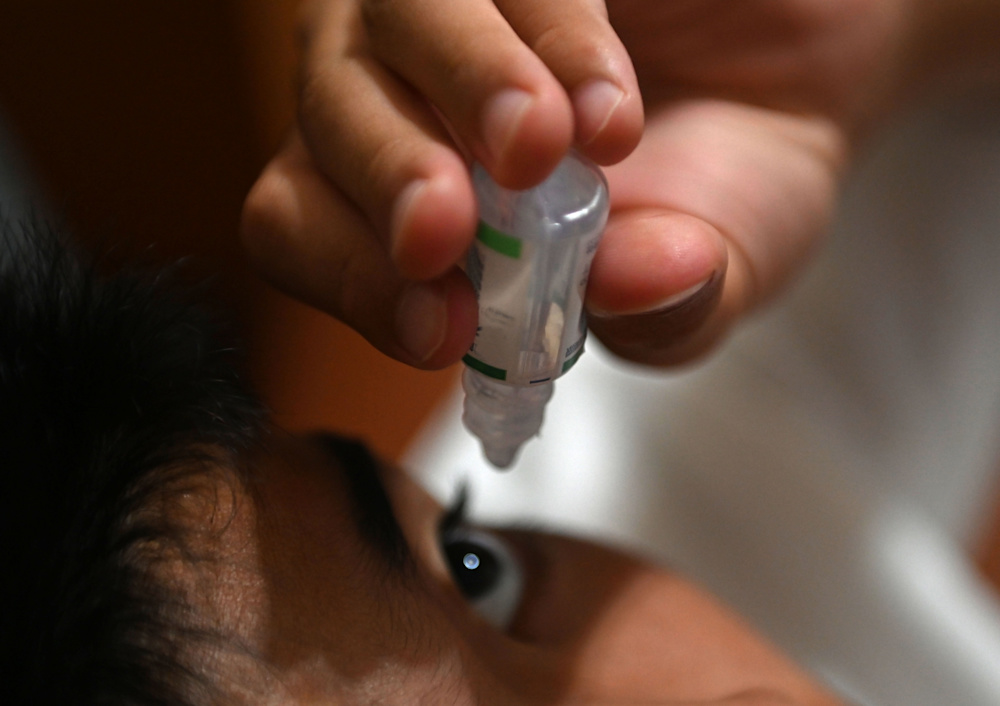
Keep These in Mind: Special Considerations
If you have astigmatism or require complex prescriptions, note that the process may take longer than same-day service.
Progressive lenses or specialized coatings typically require a few days to a week. However, most stores will accommodate urgent needs and may even offer expedited service.
Many stores also offer additional services like blue light filtering, anti-scratch coatings, and UV protection. These add-ons can significantly help your eyesight, especially if you spend a lot of time in front of screens.
How to Buy Contact Lenses in Japan
Purchasing contact lenses requires getting a prescription from an ophthalmologist, but the process is still relatively straightforward.
Getting a Prescription
The first step on how to buy contact lens in Japan is to get your eye examination done by visiting an eye specialist.
This examination is more comprehensive than a simple vision test as it assesses your eye health and determines the proper lens fit.
The eye examination for contact lenses typically costs between 1,480 yen with 30% insurance coverage and 4,920 yen for self-paying patients.
Where to Purchase Contact Lenses
Once you have a prescription, you can purchase lenses from physical stores like Owndays or Isetan, or online retailers like Lensmode or Lensnet. Many contact lens shops are conveniently located near eye clinics.
Here are your general options, all of which require a valid prescription from a Japanese ophthalmologist:
Contact lens specialty stores: Stores like J Contact (which has locations near several of the eye clinics mentioned above) have extensive selections and a knowledgeable staff that provides fitting services.
Online retailers: Many reputable online stores offer competitive prices and convenient delivery.
Drugstore chains: Chain stores like Matsumoto Kiyoshi carry contact lenses, though selection may be limited compared to specialty stores. These are convenient for emergency purchases or common prescription strengths.
Cost and Types Available
The contact lens prices in Japan are about 3,000 JPY – 4,000 JPY per box of 3, depending on the brand, prescription, and retailer. This pricing is generally competitive with international markets and often includes high-quality Japanese brands, known for their durability.
Japanese contact lens brands like Alcon Air Optix and Frequency 55 are popular choices. The market includes daily disposables, as well as weekly, monthly, and colored contact lenses. Daily disposables are particularly popular in Japan due to convenience and hygiene considerations.
Insurance and Coverage
Contact lenses for vision correction are typically not covered by Japanese health insurance, as they're considered elective rather than medically necessary. However, the relatively low cost compared to many other countries helps offset this a little.
If you're receiving contact lenses as part of treatment for specific eye conditions like severe astigmatism or following certain eye surgeries, partial insurance coverage may be available. It's a good idea to discuss this with your ophthalmologist during your examination.
Important Considerations
Japan takes contact lens safety seriously, which is why prescriptions are required even for colored or cosmetic lenses without vision correction. This regulation helps prevent eye infections and injuries that result from improperly fitted lenses, so it’s for your own safety.
Regular follow-up appointments with your ophthalmologist are recommended, especially when starting with contact lenses for the first time. Many clinics offer package deals that include initial fitting, trial lenses, and follow-up appointments.
Additional Healthcare Resources for English Speakers in Tokyo
Tokyo offers comprehensive healthcare services for English speakers across all medical specialties. English-speaking hospitals in Tokyo are available around the clock, providing emergency care, surgery, and specialized treatments.
For specific healthcare needs, you’ll find useful information in our English-speaking dentists in Japan and English-speaking gynecologists in Japan posts.
Navigating Insurance and Payment Options
Most English-speaking eye clinics in Tokyo accept Japanese national health insurance, which typically covers 70% of medical costs for routine eye examinations and treatments.
However, certain services like prescription glasses and contact lenses are generally not covered by insurance, as they're considered personal items rather than medical treatments.
Many clinics also accept international insurance plans, though it's important to check with both your insurance provider and the clinic beforehand. Some facilities may require upfront payment, with reimbursement handled directly between you and your insurance company.
Credit cards are widely accepted at most modern eye clinics, though it's always wise to bring cash as a backup. Some older or smaller clinics may only accept cash payments, particularly for services not covered by insurance.
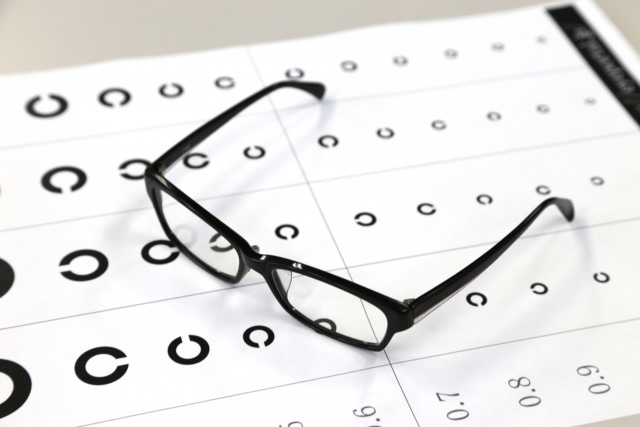
Cultural Considerations and Tips
Japanese medical culture has a thorough approach with examination and preventive care, so don't be surprised if your eye doctor recommends additional tests or more frequent check-ups than you might be accustomed to.
This approach often leads to early detection of potential issues.
Another thing to note is that punctuality is highly valued in Japanese healthcare settings, so arrive a few minutes early for your appointment. If you're running late, call the clinic to inform them, as this courtesy is greatly appreciated.
Most English-speaking eye clinics in Tokyo are accustomed to working with foreign patients and understand that cultural differences may affect communication styles and expectations. So, ask questions or request clarification if something doesn’t sound right or isn't quite clear.
Emergency Eye Care
For urgent eye problems outside normal clinic hours, the following hospitals offer emergency ophthalmology services with English-speaking staff:
Tokyo Medical University Hospital
St. Luke's International Hospital
International University of Health
Welfare Mita Hospital
Keep in mind that an eye doctor may not always be available, so call ahead to make sure you can get the care you need. Also, if the doctor decides your situation isn't an emergency, you'll likely be charged an extra fee for the after-hours visit.
If you experience sudden vision changes, severe eye pain, or eye injuries, get help right away.
Conclusion
Tokyo’s English-speaking eye clinics make it easy for international residents and visitors to access high-quality care, from routine exams to advanced surgeries.
Buying glasses is quick and affordable, with same-day service at many retailers. Contact lenses require a prescription, but the process is clear and supported by nearby specialty shops.
Don't put off eye care because you're worried about language barriers or unfamiliar procedures. The clinics in this guide are there to help, and they're experienced in working with patients from around the world.
Get Job Alerts
Sign up for our newsletter to get hand-picked tech jobs in Japan – straight to your inbox.





